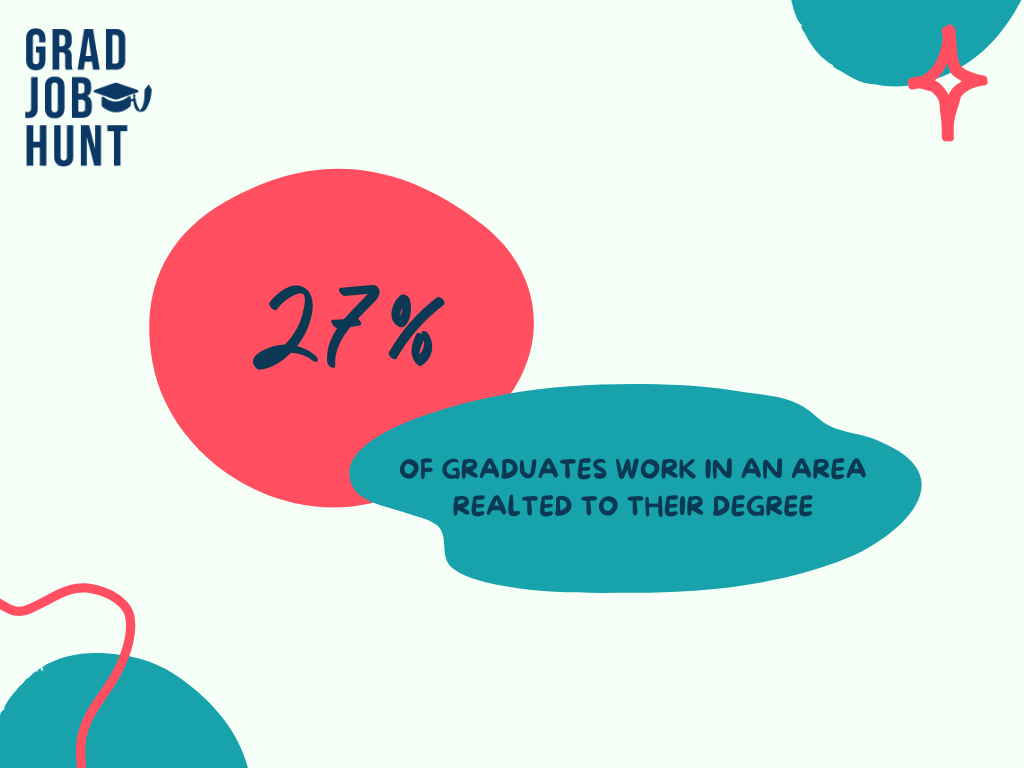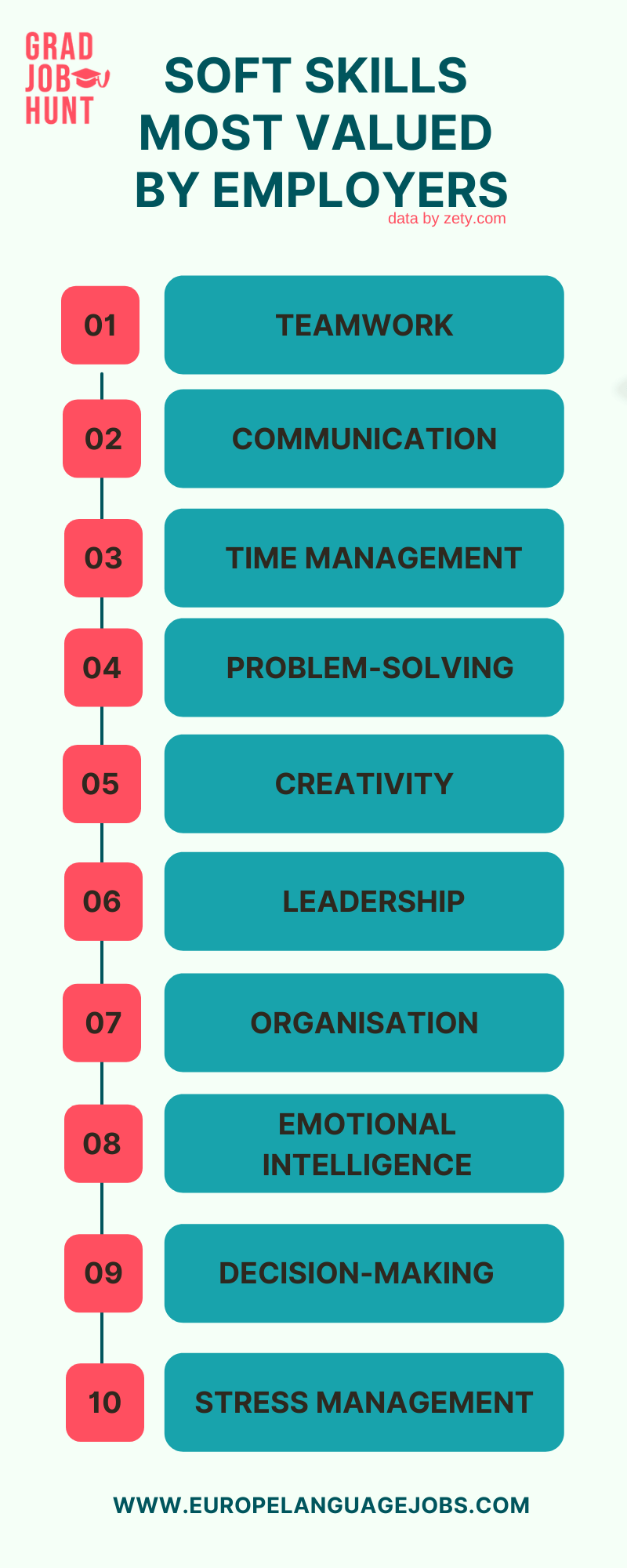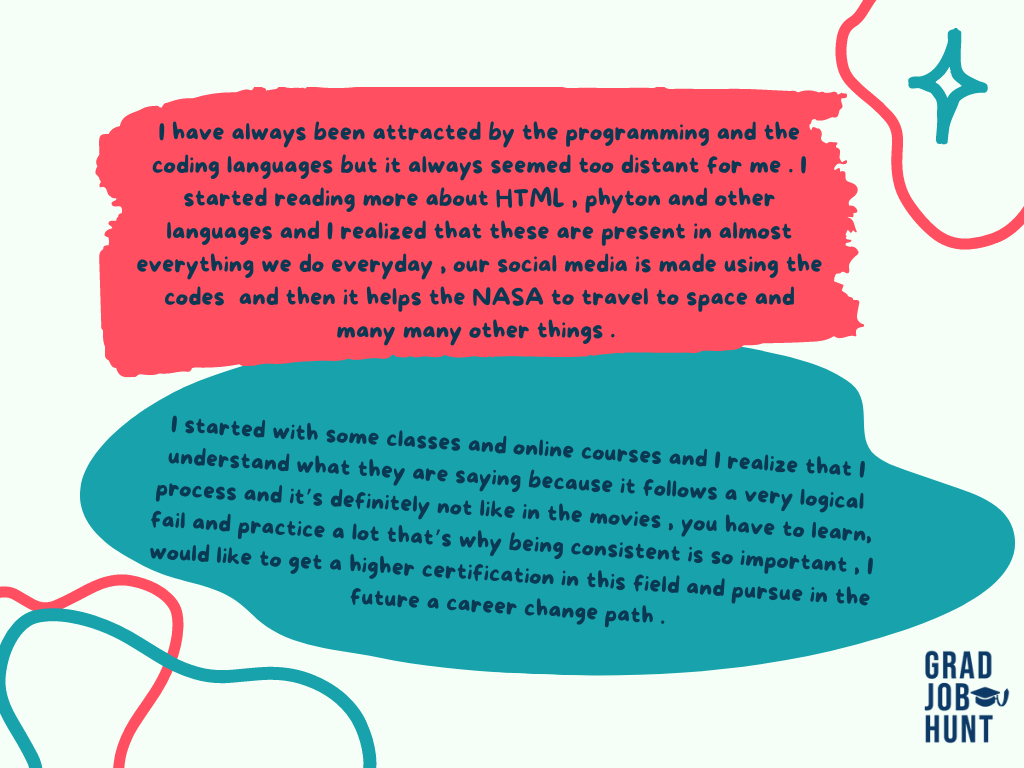We are required to choose our university degrees very early on in life. It is very difficult to select the right pathway that will somehow determine the rest of your professional life at eighteen.
What’s more, the dynamic job market subjects us to frequent changes and requires us to adapt faster, easier, more effectively. What used to be on top just a few years ago can now be slowly dying, forcing the workforce to grab onto something else.
A candidate looking for a job outside of their degree is not a sign of poor decisions, lack of hindsight, or irrelevant qualifications.
In fact, it is a common occurrence in today’s world, given how it is estimated that only 27% of graduates are lucky enough to actually pursue a career even remotely connected to their degree.

In this article, we will address both employers and their potential employees, explaining why an applicant with a potentially unrelated educational background is worthy of hiring to the former, and providing tips about how to compensate for an unrelated degree for the latter.
Let’s begin with a quick analysis of the motivations behind this phenomenon.

Why do candidates want to pursue a career unrelated to their degree?
There are as many reasons as there are people, and it is important to remember that all those reasons are equally valid.
-
What they felt passionate about enough to pursue a university course in no longer interests them
-
The job market has shifted since their choice of a degree, leaving them struggling to find a job related to their area of study
-
Getting to know the specific field in more detail during their studies, they have discovered that it doesn’t match their expectations and isn’t a good fit
-
The demand for the course they had chosen was very high at the time, leading to its growing popularity and resulting in high competition among the increased number of graduates
The courage to pursue a career in a field different from what one is familiar with, and the determination it requires to gain all the necessary qualifications on one’s own are two factors that make candidates with unrelated degrees stand out in the recruitment process.
They come equipped with unique skills that applicants who have all finished the same studies won’t have, and bring a fresh point of view to the company.
How to get a job in a different field than your degree?
- Research the jobs market
- Identify transferable skills
- Gain qualifications necessary for the new field
- Find opportunities to develop your hard skills
- Sell yourself: prove you're the right person for the job
- Be prepared to build your career from the bottom
- Don't panic, don't give up
-
Research the jobs market
If you are searching for a job outside of the qualifications directly connected to your studies, you may have already done that and discovered that your original area of interest isn’t in such a high demand anymore.
Sadly, some positions are more sought-after than others, meaning that oftentimes we need a lot of luck to succeed in landing a spot in a field that is either extremely competitive or a bit less popular among employers.
If you are already considering choosing a different path than you initially planned, why not pick one that will give you an easy headstart? Identify positions that are currently in high demand, and, more importantly, those that have the potential to maintain this status in the years to come.
You wouldn’t want the situation you’re currently in to repeat in a few short years, when the job market shifts yet again, and you are left with the necessity to convert. Again.
2. Identify transferable skills
Once you have made a list of sectors that are actively hiring, stop to think how you’re going to convince them that it’s you they need to hire. At first glance, the studies you completed might not have much to do with the career you want to pursue, but dig deeper.
Did you study Creative Writing and are looking into a position in Marketing now? While unrelated at first glance, these two areas have a lot in common.
The writing skills you acquired during your studies might give you an edge as a good copywriter. You certainly already have experience creating all sorts of content.
What’s more, gaining a degree such as this one sets you apart as someone extremely creative. Marketing is all about creativity, so make sure you use that keyword a lot in your CV!
Transferable skills can be found even in more extreme cases. Let’s say you studied Tourism and are interested in a job in Sales. Don’t panic, not all hope is lost!
Tourism mostly revolves around people and their needs - same as Sales! Both develop your communication skills and teach you how to build interpersonal relations.
What’s more, they both focus on guessing the customers’ needs even before said customers can identify them themselves, and making sure those needs are met on a satisfactory level.
There are certain transferable skills that can be applied to literally all careers, no matter what you studied and where you want to work.
Time management, organisation, teamwork, attention to detail, critical thinking, communication are some examples of traits of a good worker that every employer wants to see in a candidate - regardless of the position they are hiring for.
You can prove all of them by quoting everyday tasks you performed at your uni, such as group projects, essay writing, meeting deadlines, juggling studies and work.
Top tip: Pay close attention to what skills are listed in the job description, and structure your application around them.

*The data in the infographic is taken from a survey by Zety
3. Gain qualifications necessary for the new field
Next to transferable skills, there are also qualifications specific to a particular job. You already have many traits of a good employee, but chances are, there might still be a few you have to work on.
When the job description specifically asks for knowledge of Google Analytics or experience in operating Python, you can’t quite offer good communication skills instead. While soft skills can be developed, hard skills need to be gained.
That doesn’t mean you need to complete another degree. There are many other options to upskill, including online courses, in-person training, volunteering, or internships. While you work on gaining new qualifications, you may have to work another temporary job, but it will be worth it in the long run, if at the end of that road awaits your dream job.
Below, you can find testimony from Katia, one of the former Sales Executives at Europe Language Jobs. She dedicates her free time to learning computer programming because, as she says, you never know what might come in handy in the future, and she’d rather be ready for it!
4. Find opportunities to develop your hard skills
As mentioned above, there are many ways to gain the know-how and experience your studies didn’t provide you with. Volunteering is always a huge advantage on your CV, and if it is also related to the area you’re applying for a job in - all the better!
You can search for local committees engaging volunteers, find international programmes that organise volunteer work, or even offer to help someone for free in exchange for an opportunity to learn.
A local start-up might be struggling with finances and looking for someone to create a social media plan, help with accounting, or design a website. They won’t be picky about your lack of experience if you offer a helping hand for free, and it will be a huge step forward for you as well!
Internships are another great way to get your foot in the door of your desired career. As they are designed for inexperienced candidates by default, employers will be more interested in your experience, as well as the skills you bring to the table and how you can contribute to the company’s growth, rather than what degree you have.
You will learn all the necessary things on the spot. They’re the perfect opportunity to “test drive” a career - plus oftentimes, you can even get paid for it!
5. Sell yourself: prove you’re the right person for the job
A successful application narrows down to how well you advertise yourself. We won’t get into detail about how to write a successful CV and draft an exemplary cover letter, or how to do well in an interview here, but we will emphasise how important it is to approach the topic from the correct angle.
Don’t direct the spotlight on the unrelated degree. Talk with confidence about the elements of your CV that are tailor-made for the particular job description. Mention any relevant experience you may have had. In your resume, use keywords that the recruiter wants to see that match your candidate’s profile (don’t lie!).
Don’t explain yourself in your cover letter - focus instead on describing the steps you took to make sure you fulfil all the qualifications required for the job, and how you will use them to contribute to the company’s growth if you get hired.
When asked about your degree during an interview, answer truthfully. Give a valid reason for why you are interested in a position in an area different from what you studied, and explain how you are still a good match in spite of a potentially irrelevant degree.
Chances are the person sitting across the table didn’t study Human Resources, either, so they certainly won’t judge you as long as you can demonstrate you come with the set of skills necessary for the position.
6. Be prepared to build your career from the bottom
Whether you are looking for a job unrelated to your degree straight after graduating or you have already pursued a career before and are starting a new one, you need to make peace with having to make your way from the bottom.
It especially applies if your desired field of work is really far away from what you studied. An unrelated degree is unlikely to cost you a job, but it might result in a position that is slightly lower in the hierarchy than the one you could have been offered with a different university course and the set of skills coming with it.
This is not necessarily a setback - it only means you will have to work a little bit harder over the first few months to secure a quick promotion. Unless you tattoo it on your forehead, nobody in the company will remember what degree you came with.
The only things your coworkers and managers will notice will be your contribution, development, and productivity, so nobody will question it when you get moved up the ladder.
In the Marketing Department at Europe Language Jobs, you can find people with all kinds of degrees - except Marketing. They vary from business-related courses, to cases as extreme as Tourism or Translation graduates.
And we make it work!
The vast majority of us started as interns and became full-time employees once we acquired the necessary skills and proved we belonged in the team. Even our Director started as a Marketing Intern many years ago! So the next time you think something is impossible - think twice :)
7. Don’t panic, don’t give up
Employers are not as hung up on your degree as you may think. Truth be told, they will expect to train you for the job, anyway - a finished university course is just formal proof that you are trainable.
What’s more, some employers even specifically look for candidates with unconventional backgrounds - they believe such a workforce will bring new ideas to the workplace, and demonstrate a different perspective.
Oftentimes, depending on the course, a university degree will equip you with a lot of theoretical knowledge, but not necessarily practical know-how. To tell the truth, real life looks a bit different from what we learn during our studies.
Employers are aware of that, which is why they would rather focus on your skills and actual work experience than on the subjects you studied.
Instead of regretting your decisions from the past, think of what gives you an advantage in your career. Below you can see an example of a job advertisement for a remote copywriter published on our platform:

See how in the requirements, the company states a related degree OR relevant experience?
The employer doesn't insist on relevant education, as long as the candidate can prove they are otherwise qualified. The second bullet point also focuses directly on skills - in the end, they’re your golden ticket to the job of your dreams.
Of course, it is worth pointing out that this article applies mostly to the niche we specialise in at Europe Language Jobs - the business sector. The issue certainly becomes more complicated when it comes to strictly technical jobs in areas such as law or medicine.
However, unless your dream is to be a judge or a surgeon and you are aware of how much commitment is necessary to pursue this goal, there are many spheres on the job market where the borders are much more fluid.
Regardless of whether you’re looking for a job in a field unrelated to your degree out of necessity or according to your own preferences, remember to keep your mind open.
Start with identifying your strengths, comparing them to the demand on the job market, and finding the perfect balance between those two factors. So many careers are closely related nowadays - even though they might not seem so at first glance.
Very often, it is our job that chooses us, and not us who choose the job - and before we know it, we realise we wouldn’t want to be anywhere else than where life has thrown us.
We are sure that if you follow these 7 simple steps, you will succeed not only in getting a job unrelated to your degree, but also in finding one you’re going to love. And if you’re already here, why not start looking straight away?
Feeling inspired? Visit our blog for more career advice! How can you be sure the information we provide is top-notch? We are a group of professionals working with recruiters, career coaches, and HR specialists from all over the world!
Trust our experience and let us help you find a new job in Europe!














































































Renata Repiska1y ago
Wonderful article! so matching to my current situation
Wonderful article! so matching to my current situation